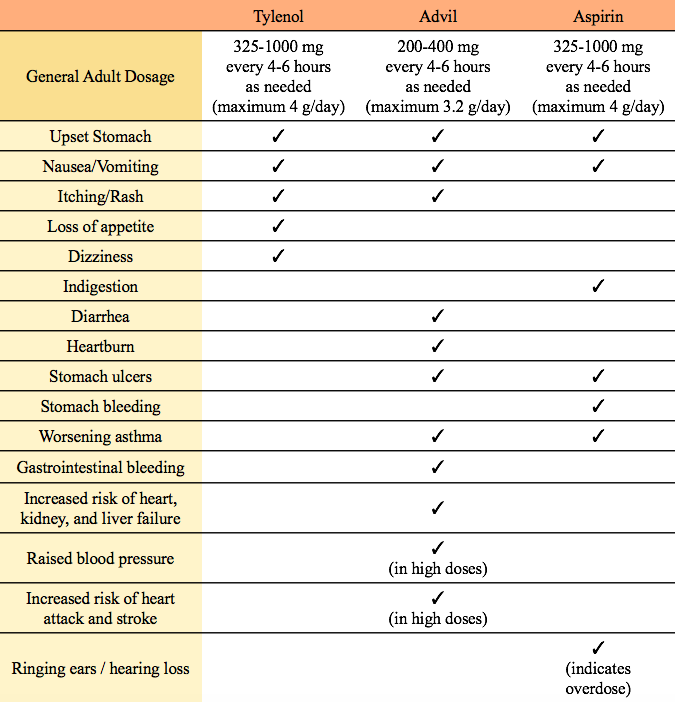Possibly one of the most dreadful feelings: an oncoming headache. Nothing more mundane could be worse than your head feeling like it’s caving in at any moment while you’re trying to get through the day. There are many different types of headaches, with tension headaches being the most common among adults and teens caused by a variety of factors.
You soon find yourself at the local pharmacy to quickly rid yourself of the pain. So, what should you take? The following are common over-the-counter drugs (OTC) used to treat pain and fever relief.This is the brand name of the chemical drug acetaminophen (also known as paracetamol). It is the most popular OTC painkiller worldwide. Acetaminophen inhibits the synthesis of prostaglandins, which are chemical messengers produced by the body in response to an injury/illness that helps to signal pain and induce fever. Acetaminophen then blocks this signalling to help reduce the pain. Prostaglandins also induce inflammation of the body tissues but (unlike the other two drugs below) acetaminophen does not have anti-inflammatory action.
Acetaminophen is most frequently involved in drug overdose. Overdose or mixing with alcohol may result in severe or fatal liver damage. It was the leading cause of acute liver failure in the US between 1998 and 2003.However, Tylenol is generally considered safe for pregnant women in all three trimesters. It can also be taken by any age group including young children with fevers at 3-months-old, which is probably one of the main reasons why this brand is so popular.
Advil
This brand’s sole medicinal ingredient is ibuprofen. It belongs to the class called non-steroidal anti-inflammatory drugs (NSAIDs). Ibuprofen blocks the production of prostaglandins and helps relieve a broad range of aches, especially hangover-type headaches!
Most NSAIDs also have an anti-platelet effect from reversibly altering platelet function, which protects from blood clots by prolonging bleeding time.Women are not recommended to take Advil during pregnancy. Unlike Tylenol, children need to wait until at least 6-months-old to take Advil.
The chemical name of this brand is acetylsalicylic acid (ASA). Like Advil, they also belong to the class of NSAIDs therefore also providing release with anti-inflammatory action. They also work by decreasing the body’s production of prostaglandins. In addition to providing relief from headaches, Aspirin can be prescribed by a doctor as a blood-thinner to lower the risk of stroke and heart disease, something that Tylenol and Advil cannot do.
Unlike other NSAIDs, Aspirin irreversibly and permanently prevents platelet function during their lifespans of 8-10 days, resulting in inclined unstopped bleeding.Aspirin is considered relatively safe in infrequent doses for women during the first two trimesters of pregnancy, but should be avoided in the third trimester as it can be harmful to both the mother and baby. Aspirin should also be avoided in children less than 18-years-old that have a viral illness (e.g. flu or chicken pox) due to the risk of Reye syndrome.
Comparison and conclusions:

Table comparing the three painkiller brands. Advil has the most adverse effects, but Advil is less toxic than Tylenol in terms of overdosage. Advil and Aspirin are similar in their type class and side effects. Tylenol is safest to use for pregnant women and can be taken the earliest in children. [Source: Created using Microsoft Powerpoint]
Please note this post is a basic guideline for the self-treatment of common, mild-to-moderate headaches. If your headache is excruciating or lasts longer than a couple days, please consult with a pharmacist/doctor if there is an underlying issue and to discuss other treatment options.
– Julie Zhu

:format(webp)/cdn.vox-cdn.com/uploads/chorus_image/image/46977338/shutterstock_269359883.0.0.jpg)

2 responses to “Please get rid of this headache!”